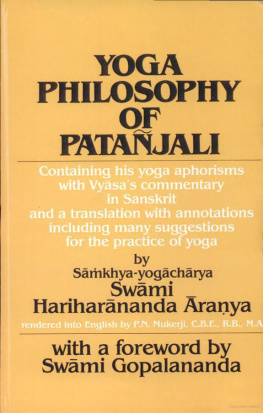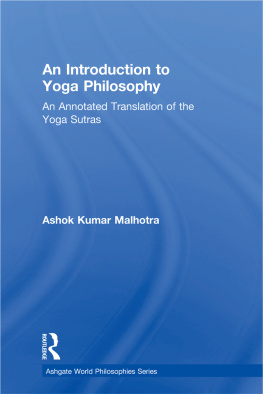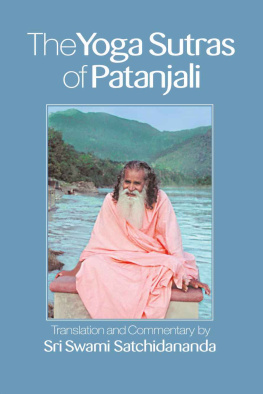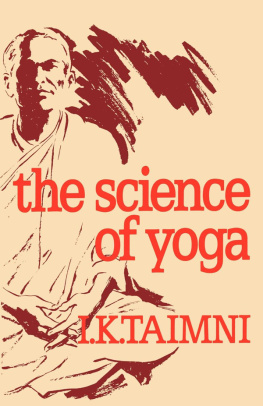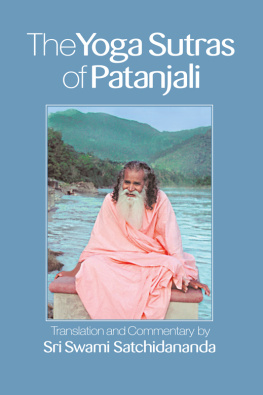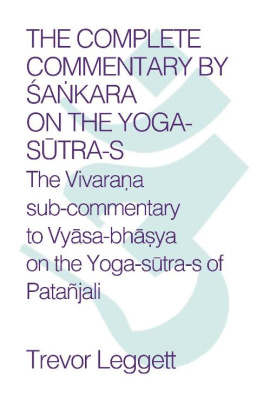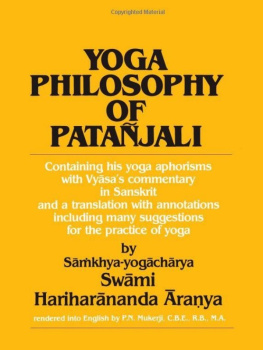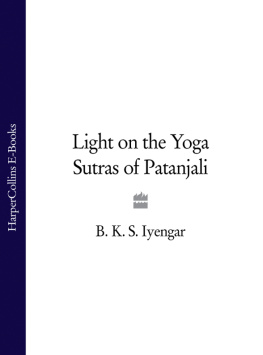Vyāsa. - Yoga philosophy of Patañjali : containing his Yoga aphorisms with Vyāsa’s commentary in Sanskrit and a translation with annotations including many suggestions for the practice of Yoga
Here you can read online Vyāsa. - Yoga philosophy of Patañjali : containing his Yoga aphorisms with Vyāsa’s commentary in Sanskrit and a translation with annotations including many suggestions for the practice of Yoga full text of the book (entire story) in english for free. Download pdf and epub, get meaning, cover and reviews about this ebook. City: Albany, year: 1983, publisher: State University of New York Press, genre: Religion. Description of the work, (preface) as well as reviews are available. Best literature library LitArk.com created for fans of good reading and offers a wide selection of genres:
Romance novel
Science fiction
Adventure
Detective
Science
History
Home and family
Prose
Art
Politics
Computer
Non-fiction
Religion
Business
Children
Humor
Choose a favorite category and find really read worthwhile books. Enjoy immersion in the world of imagination, feel the emotions of the characters or learn something new for yourself, make an fascinating discovery.
- Book:Yoga philosophy of Patañjali : containing his Yoga aphorisms with Vyāsa’s commentary in Sanskrit and a translation with annotations including many suggestions for the practice of Yoga
- Author:
- Publisher:State University of New York Press
- Genre:
- Year:1983
- City:Albany
- Rating:5 / 5
- Favourites:Add to favourites
- Your mark:
Yoga philosophy of Patañjali : containing his Yoga aphorisms with Vyāsa’s commentary in Sanskrit and a translation with annotations including many suggestions for the practice of Yoga: summary, description and annotation
We offer to read an annotation, description, summary or preface (depends on what the author of the book "Yoga philosophy of Patañjali : containing his Yoga aphorisms with Vyāsa’s commentary in Sanskrit and a translation with annotations including many suggestions for the practice of Yoga" wrote himself). If you haven't found the necessary information about the book — write in the comments, we will try to find it.
The Yoga Sutras of Patanjali are universally acknowledged as the fundamental text on yoga and meditation in the Indian classical tradition. This English translation of Yoga Philosophy of Patanjali is widely regarded as the most authoritative and authentic that has been available in recent times. It is a serious and clear presentation of Patanjalis sutras and Vyasas Bhasya, providing these basic texts both in the original Sanskrit and in readable and accurate English. These classical works are augmented by the commentary of Swami Hariharananda Aranya, a scholar and yogi of great repute, who, in his lifetime, was the foremost exponent in India of the Samkhya Yoga system of which the Yoga Aphorisms of Patanjali are the principal work
Vyāsa.: author's other books
Who wrote Yoga philosophy of Patañjali : containing his Yoga aphorisms with Vyāsa’s commentary in Sanskrit and a translation with annotations including many suggestions for the practice of Yoga? Find out the surname, the name of the author of the book and a list of all author's works by series.

